Ritesh Batra, a 37 year old director from Mumbai, is in New York when we speak, not far from the editing room. He's just finished a shoot in Colorado for what will be his third feature in four years (Our Souls at Night). He hasn't yet decided where he'll be next but he has a lot of options. His debut film The Lunchbox (2013), a bittersweet romance set in Mumbai starring Irrfan Khan, put him on the map. For his follow up, a somewhat surprising move: the British literary adaptation of Julian Barnes bestseller "The Sense of an Ending," which just opened in limited release.
The Sense of an Ending concerns a divorced shop owner Tony (Jim Broadbent / Billy Howle) who is suddenly preoccupied with memories of his youth and his first love Veronica (Charlotte Rampling / Freya Mavor) after receiving news that her mother (Emily Mortimer) has died. His ex-wife and confidante Margaret (Harriet Walter) can't understand what's throwing him so much about this news as Tony turns the memories over and over again in his head.
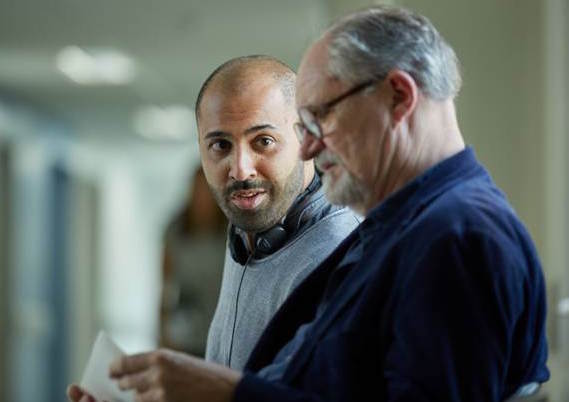
We spoke with Ritesh about the difference between working with movie stars and unknowns, and how to make memory work onscreen. The interview is after the jump...
NATHANIEL R: Your breakthrough project was The Lunchbox which you both wrote and directed. This time it's someone else's adaptation, so how did that come about?
RITESH BATRA: I like to write my own material but I read the book in 2011 and loved it. But I discovered it was already being adapted by the BBC. Two or three years later, after The Lunchbox came out, it came to me as an offer to direct. I met with the screenwriter Nick Payne and I had a great feeling about the collaboration. I also met with Julian Barnes, the writer of the novel. Julian told us "go ahead and betray me."
Were you able to have input on the screenplay. I can't imagine it was easy to adapt.
Nick had already made a lot of ingenious decisions, like making Susie [Tony's daughter, played by Michelle Dockery] a real character, because movies have to be told through relationships. The book is Tony talking to the reader in first person. The novel spoke to me as a story of regret and loss and friendships that fall by the wayside. We are always on this quest to get closure, consciously or subconciously. I knew the movie would be difficult and in many ways an invasive adaptation.
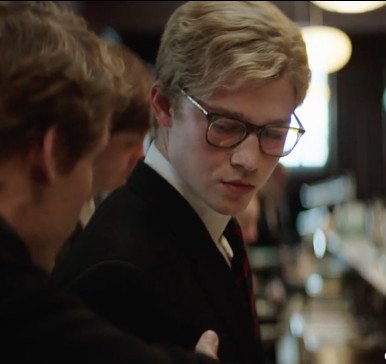 Joe Alwyn as the idealized Adrian in THE SENSE OF AN ENDING
Joe Alwyn as the idealized Adrian in THE SENSE OF AN ENDING
NATHANIEL: It's such a literary novel. I assume there was a lot of discussion about making memory visual.
RITESH: We spent a lot of time editing it, but we already had it on the page before we shot it. There was a lot of beautiful prose in the novel where Adrian's character, especially, talks about memory and history. The toughest part about the adaptation was getting rid of all that. Julian Barnes doesn't do that for no reason but to build up Adrian in Tony's mind. In the movie we could do that with less with just how Tony looks at Adrien and what Tony witnesses of Adrian with the teachers. We tried to find those opportunities to do more with silences rather than words.
NATHANIEL: Some filmmakers use the same department heads in multiple films but you don't seem to, other than John Lyons your editor? I've noticed that with other directors, too. Why is the relationship between the director and editor that key?
I also work with the same composer, Max Richter. I would love to always work with the same people on every movie but geography doesn't support that often. You know I like to be really involved. John and I spend a lot of time together in the editing room, talking through the story and getting its rhythm right. It's a very close collaboration and there's a lot of shorthand involved. Movies, in many ways, are crafted on the editing table. They really are.
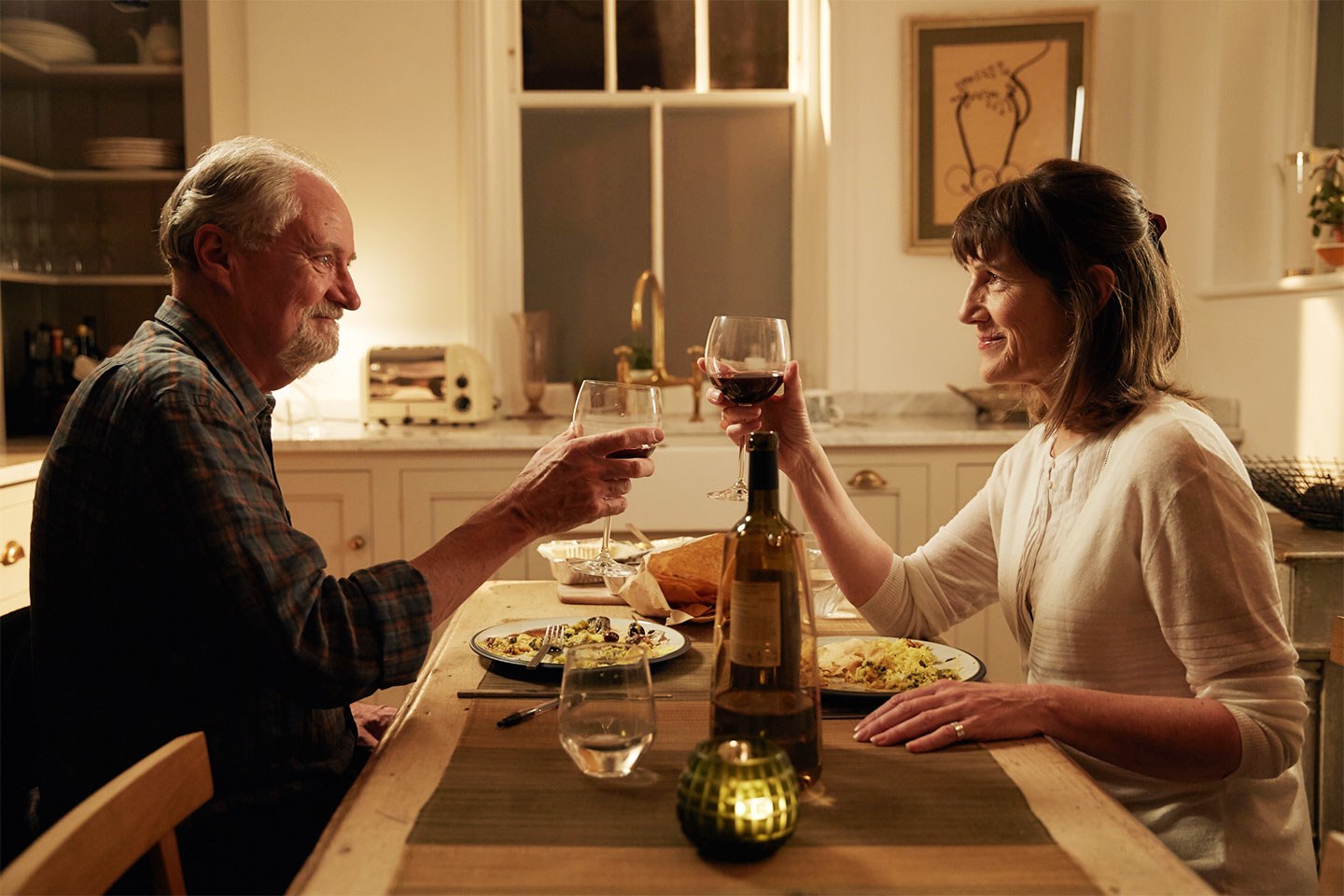 Jim Broadbent and Harriet Walter are friendly exes in THE SENSE OF AN ENDING
Jim Broadbent and Harriet Walter are friendly exes in THE SENSE OF AN ENDING
I thought the casting was quite interesting on The Sense of an Ending. How involved are you with that?
Very involved. The casting took several months to get it right. We had legends like Jim and Charlotte and Harriet who've had interesting and varied careers. And these beautiful soulful actors like Michelle Dockery and Emily Mortimer. And then we had young actors who hadn't really been in a movie before -- the whole gamut. It took a long time.
And you had to double cast for the roles...
With the young actors we weren't looking for look-alikes. We were looking for actors who got the essence of the part. Billy Howle read for it three times and he really caught something fundamental to Tony's part that when we are young we are all charlatans to some degree, poseurs -- we are trying to be somebody. The distance between the young Tony and the old Tony as a person is not that great. But the young Veronica and the old Veronica there is a great distance between those two because she's been through a lot. And that's just the tragedy we know of. Charlotte Rampling comes to the screen and she brings all that with her.
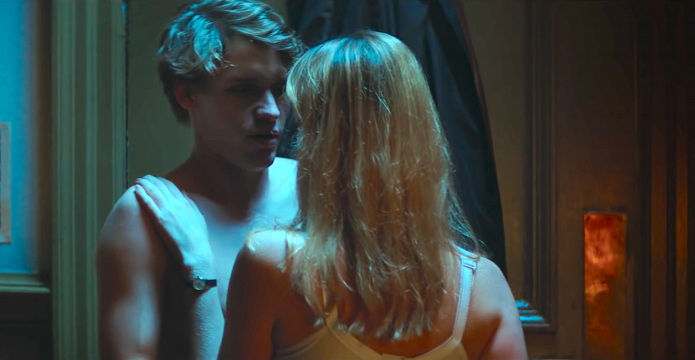 Billy Bowle and Freya Mavor as the young lovers of THE SENSE OF AN ENDING
Billy Bowle and Freya Mavor as the young lovers of THE SENSE OF AN ENDING
I thought it was an unexpectedly insightful move to pair Harriet Walter with Michelle Dockery as mother & daughter. They're both so often cast to be brittle but they're capable of warmth and offer so much more nuance than they get credit for.
They're wonderful to work with.
And any movie that makes good use of Emily Mortimer I'm thankful for!
In Sense the reason the novel works so beautiful is because its firmly entrenched in Tony's point of view. It's a first person account but when we started making the movie we realized Sarah Ford cannot be the same character carried over from the book. Emily Mortimer came onboard and had so much sympathy and empathy and we worked on it together to create a character. We took away with her youth - giving her an older husband and older children than one would anticipate she'd have.
The movie is kind of a slow burn until the memories are intertwined with the present tense. Gradually Jim Broadbent is sometimes pictured within his memory scenes. Was that visual mixing of the time frames in the screenplay?
Yes but as we got closer to the shoot that became even more of an important consideration. The nature of this movie is very different than other movies with flashbacks. We are leaving for huge amounts of time. These are very long flashbacks. When you come back you still want the audience to be invested in this man's journey. There were things we added. And then there are things you discover in the shoot. I was shooting with the younger actors once and we discovered this thing where Veronica [Freya Mavor] cracks Tony's knuckles. A couple of weeks later when I was shooting with Jim I asked him to do that to help us tie those moments together.
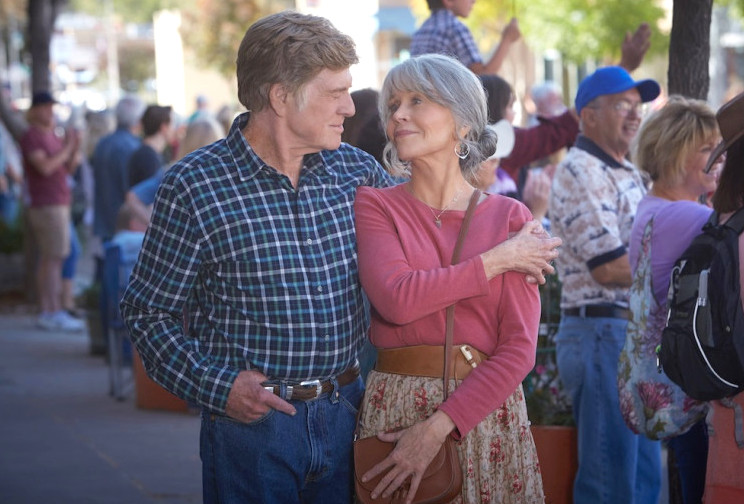
You've worked with relative unknowns, as well as superb characters actors like Irrfahn Kahn and Jim Broadbent. Now you're directing two iconic stars Jane Fonda and Robert Redford in Our Souls at Night. Do you have to adjust your directing style for movie stars or do you just think of them as character actors?
They are. Working with Robert Redford isn't much different than working with Charlotte. But different actors work differently. When I was working on The Lunchbox, Nimrat Kaur appreciated a lot of rehearsal. Irrfan and Charlotte are very similar actors, they bring something from deep within themselves and you have to recognize that and preserve that on set for them. And they're always trying to dig deeper. Nawazuddin Siddiqui in The Lunchbox and Michelle Dockery are a very similar kind of actor. They have this beautiful way of kind of taking something from the environment around them, putting it inside, and bringing it out in a very true way. You find similarities along the way and also differences. For Harriet, every detail of the costume is very important to her. She works very hard with that department. You have to create time and space for that.
It's really about finding what's an important to an actor and working accordingly. But I really enjoy collaborating with people. They each do things differently but it's a real privilege to watch them work.
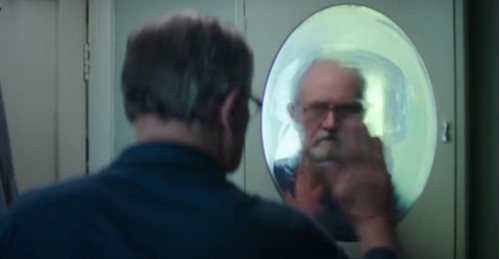 Tony (Jim Broadbent) is lost in memory. But is he remembering correctly?
Tony (Jim Broadbent) is lost in memory. But is he remembering correctly?
Your movies thus far have been very intimate, human-scaled but you're a fairly new filmmaker. Do you think of yourself as "an actor's directors"?
You know, I don't know! [Pause] To make a movie work you need to be an actor's director but you need to equally be a director for your crew. I don't know how to answer your question. I don't really put so much though into myself. Maybe I should! [Laughter]
